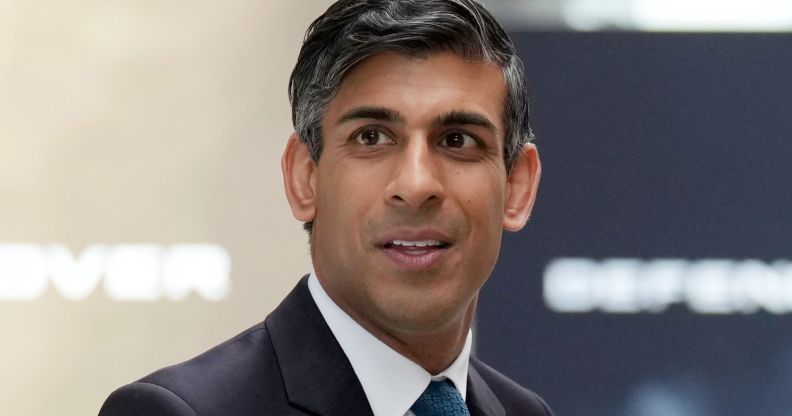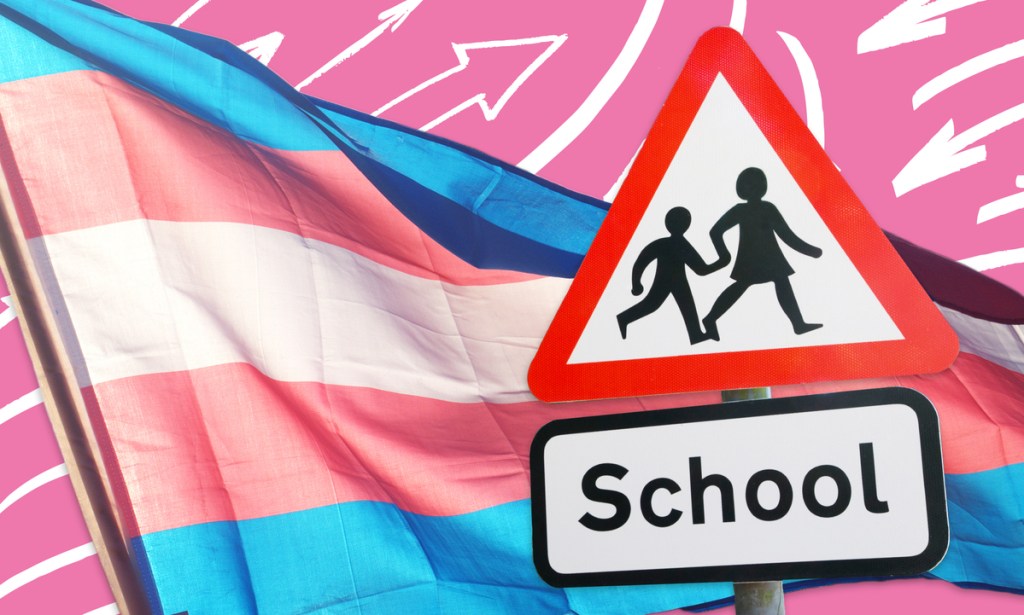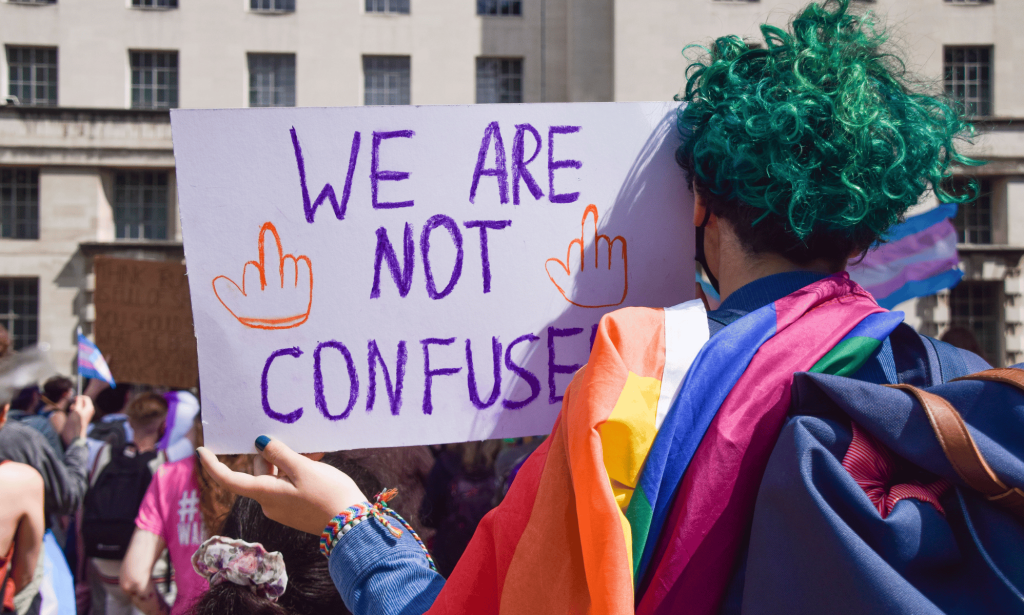Tory school guidance for trans kids could break UK law, research suggests

The Tory government’s school guidance requiring parental permission for a child’s social transition have been widely criticised. (Getty)
Activist group TransActual has accused the Conservative government of a “significant and deliberate” attempt to challenge trans and non-binary people’s freedom to change their name, including the recently confirmed school guidance on pronouns.
Education secretary Gillian Keegan confirmed government plans that would see schools require parental consent before teachers can recognise trans pupils’ social transition, while speaking to Robert Peston on Wednesday (19 July).
“We think parental consent is really very important in this,” Keegan said. “That’s something that I know a lot of schools have been pressing for guidance, a lot of parents have been worried about this and we do think it’s important that parents are involved in the discussion.”
The guidance, which initially leaked in April, would force teachers to ‘out’ trans, non-binary, and gender non-conforming pupils to their parents and only allow them to use their pronouns and a new name with explicit permission.
However, evidence collected in a memorandum by TransActual suggests that not only could the legislation breach the 2010 Equality Act, it could be in danger of breaching other parts of the law.

Section three of the 2010 Equality Act states that there is currently no specific legal age limit for legally changing a name in England, Wales and Northern Ireland without parental consent.
Instead, a legal assessment is carried out to deem whether the young person is able to give consent without parental permission, which includes factors such as the marriage status of the parents, the reasons given for a name change, whether circumstances have changed for the child since the application was made, and more.
In instances where a child is able to give consent, a parent or guardian or school teacher would have “no right” to force a child to change or not change their name.
While it found a presumption of capacity to consent regarding children aged 16 and above under section eight of the 1969 Family Law Reform Act, the memorandum also states: “In general, however, children of any age can make their own decision about the change of the name if they have sufficient understanding and intelligence.”

A prime example of this relates to the Gillick Competence, a standard based on a 1986 case that found doctors could prescribe contraceptive advice and treatments to under-16s without parental consent if they had “sufficient maturity and intelligence”.
The rule can also be used in a wider context to discern whether children are mature enough to make their own legal, ethical or medical decisions.
At the time, House of Lords Baron Andrew Fraser wrote: “Provided the patient, whether the boy or a girl, is capable of understanding what is proposed, and of expressing his or her own wishes, I see no good reason for holding that he or she lacks to capacity to express them validly.
“After all, a minor under the age of 16 can, within certain limits, enter into a contract. He or she can also sue and be sued, and can give evidence on oath.”
In a separate statement, TransActual called upon organisations and legal entities to support the trans and non-binary community in the face of what it called “deliberate challenges” preventing trans people, particularly under-18s, from being able to change their name and pronouns.
“This also disproportionately affects other groups, such as survivors of abuse,” it continued. “We believe that these actions may be discriminatory and unlawful under the Equality Act and the GDPR.”
TransActual’s statement also urged organisations and those in positions of power to aid in “resisting these requirements” and promoting the freedom for individuals to have their legal name recognised.
It added that the memorandum was not intended to give “specific legal advice” and urged those intending on pursuing a claim regarding their legal name change to “consult an independent legal professional”.
Public law solcitor believes trans school guidance is ‘unlawful’ and ‘unjustifiable’
Legal teams have also agreed that suggested stipulations that could be included in the guidance would result in direct or indirect discrimination.
Lui Asquith, a public law solicitor at law firm Russell-Cooke LLP, told PinkNews that it is difficult to see how the legislation would satisfy legal safeguarding duties, especially if pupils are outed to hostile parents or guardians.
“We know all too well that LGBT+ related child abuse in the home still happens and a population of LGBT+ young people become homeless as a direct result of their main carers learning of their gender identity,” Asquith said.
“LGBTQ+ safeguarding is not always straightforward and is always case sensitive.”
Asquith also agreed that the Gillick Competence is especially applicable here, saying that the guidance would likely directly go against the purpose of the 1986 rule.
“Insisting that the voice of the young person is never to be taken as its own authority would be antithetical to our established law on children’s rights recognised as common law,” Asquith continued.
“Parental responsibility, which parents and sometimes others hold for a young person until they are 18, will not always trump a young person’s autonomy to make certain decisions even though it may be appropriate to involve the parent in some cases.”
The solicitor concluded that because the guidance is non-statutory, there is not necessarily an obligation for schools to follow it.
“We could then be in ‘battle of the policy’ territory,” Asquith added. “Schools are asking for ‘clarity’, but from what we know so far, it may instead contribute to further confusion and litigation.”

